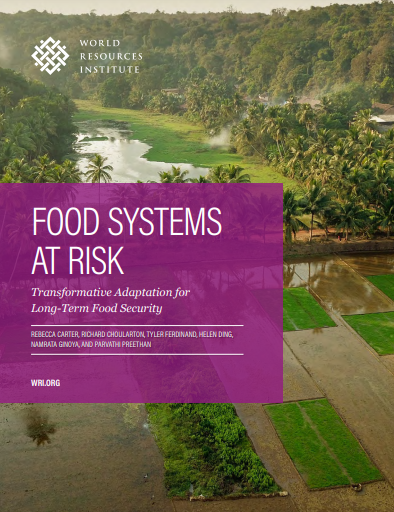Food Systems at Risk: Transformative Adaptation for Long-Term Food Security

ABSTRACT
This report examines how climate change is impacting agriculture and threatening national and global food systems, particularly in climate hotspots, and how these trends are projected to intensify over the coming decades. The report defines and details transformative adaptation for agriculture and why such longer-term, systemic approaches are needed to protect the lives and livelihoods of millions of small-scale farmers and herders. Transformative adaptation in agriculture promotes long-term resilience by continually shifting the geographical locations where specific types of crops and livestock are produced, aligning agricultural production with changing landscapes and ecosystems, and/or introducing resilience-building production methods and technologies across value chains.
The report presents evidence to support a call for urgent action by:
- Agricultural research organizations, to build and share knowledge regarding transformative approaches;
- Governments, to integrate this knowledge into plans and policies by establishing and implementing transformative pathways; and
- Funding entities, to increase financial support for agricultural adaptation and design sustainable financing mechanisms with the right incentives and disincentives to support transformative adaptation.
Strategic investments in resilient food systems are crucial to manage intensifying climate change impacts and feed a global population expected to reach 9.7 billion by 2050. Planning for transformative adaptation should center on inclusive, participatory processes that engage a diverse range of stakeholders who may otherwise be marginalized in decision-making, such as women, youth and Indigenous peoples.